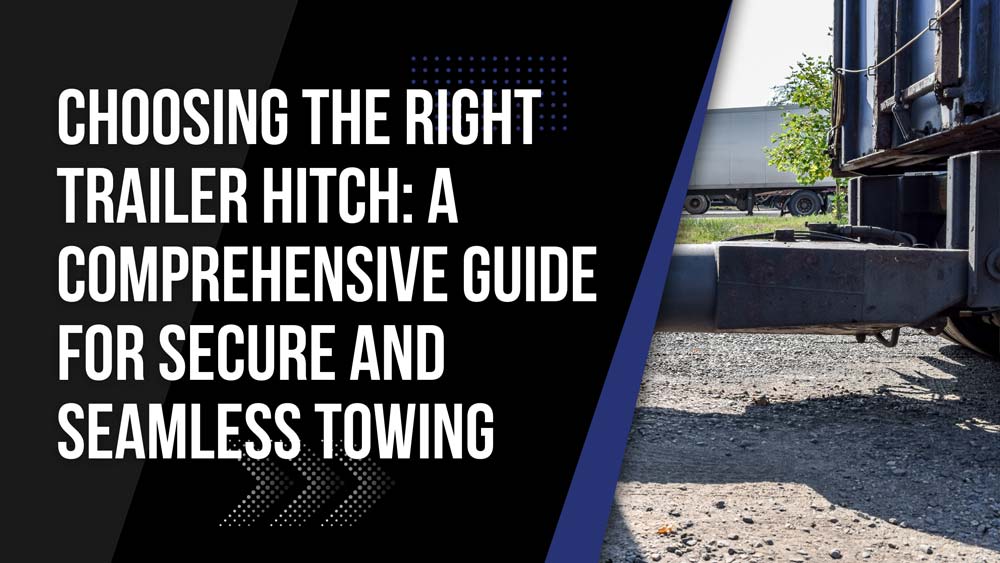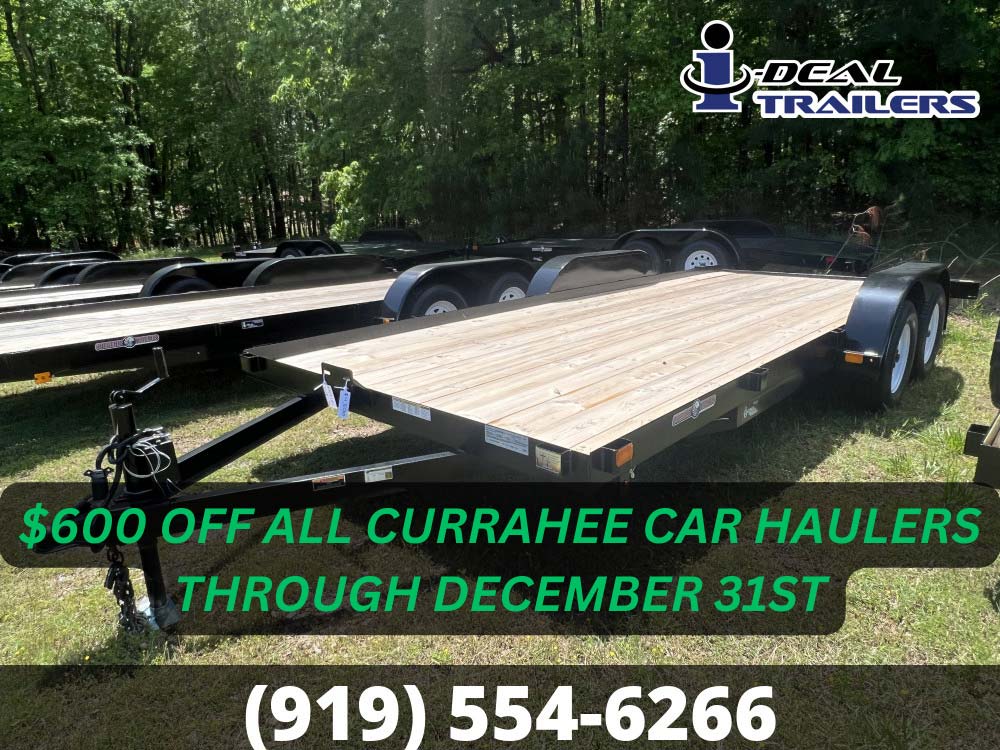Choosing the Right Trailer Hitch: A Comprehensive Guide for Secure and Seamless Towing

A reliable and secure trailer hitch is the cornerstone of any successful towing setup, serving as
a vital link between your tow vehicle and trailer. Choosing the perfect hitch not only ensures a
secure connection between your vehicle and trailer but also maximizes towing efficiency and
safety on the road. With several hitch types available, making the right choice can seem
overwhelming, especially if you're new to the world of towing. That's where our comprehensive
guide comes in, providing you with all the information you need to make an informed decision
when selecting the ideal hitch for your towing needs.
In this guide, we will explore the role of trailer hitches in the towing process, discuss the different hitch classes, reveal the various hitch types, and provide tips for determining the best hitch for your tow vehicle and trailer combination. Armed with this knowledge, you'll be well-equipped to create a solid and seamless towing connection for your hauls, ensuring optimal towing safety and efficiency for every trip.
In the following sections of this guide, we will dive deeper into the world of trailer hitches, offering expert advice and insights so you can make an informed, confident decision when it's time to select the hitch that will elevate your trailering experiences and keep your cargo safe and secure on the road.
In this guide, we will explore the role of trailer hitches in the towing process, discuss the different hitch classes, reveal the various hitch types, and provide tips for determining the best hitch for your tow vehicle and trailer combination. Armed with this knowledge, you'll be well-equipped to create a solid and seamless towing connection for your hauls, ensuring optimal towing safety and efficiency for every trip.
In the following sections of this guide, we will dive deeper into the world of trailer hitches, offering expert advice and insights so you can make an informed, confident decision when it's time to select the hitch that will elevate your trailering experiences and keep your cargo safe and secure on the road.
Understanding Trailer Hitch Classes and Weight Capacities
1. Class I Hitches Class I hitches are suitable for light-duty towing and can accommodate up to 2,000 pounds of gross trailer weight (GTW), with a maximum tongue weight (TW) of 200 pounds. They're an excellent choice for compact cars, sedans, and small crossover vehicles towing light cargo trailers or bike racks.2. Class II Hitches With a maximum GTW of 3,500 pounds and a TW of up to 350 pounds, Class II hitches are designed for moderate-duty towing. Suitable for small SUVs, minivans, and crossover vehicles, Class II hitches typically accommodate small utility trailers, boat trailers, and popup campers.
3. Class III Hitches Offering a GTW capacity of up to 8,000 pounds and a TW of 800 pounds, Class III hitches cater to heavier-duty towing. They're ideal for full-size SUVs, pickup trucks, and vans towing larger utility trailers, boats, or travel trailers.
4. Class IV and V Hitches Designed for heavy-duty and extra-heavy-duty towing, Class IV and V hitches can accommodate GTWs ranging from 10,000 pounds up to 20,000 pounds and TWs between 1,000 and 2,000 pounds. These hitches are ideal for large and heavy tow vehicles like full-size trucks, SUVs, and commercial vehicles.
Exploring Different Hitch Types
1. Receiver Hitches Receiver hitches are the most common type of trailer hitch and include a square or rectangular receiver tube that accepts a compatible hitch ball mount or other towing accessories. Available in various classes, receiver hitches are versatile and cater to a wide range of towing applications.2. Weight Distribution Hitches These hitches help evenly distribute the trailer's weight across both the tow vehicle and the trailer, reducing sway and improving stability on the road. Weight distribution hitches are ideal for larger trailers and heavier loads, providing a more controlled and comfortable towing experience.
3. Gooseneck Hitches Gooseneck hitches are designed for heavy-duty towing and are commonly used to tow large horse trailers, livestock trailers, and equipment trailers. Installed in the bed of a pickup truck, they provide increased towing capacity, improved maneuverability, and a tighter turning radius.
4. Fifth-Wheel Hitches Similar to gooseneck hitches, fifth-wheel hitches are mounted in the bed of a pickup truck and are used for towing large travel trailers, RVs, and toy haulers. They offer excellent stability and control, making them a popular choice for long-distance towing or large recreational vehicles.
Choosing the Right Hitch for Your Towing Needs
1. Determine Your Towing Capacity Start by reviewing your tow vehicle's owner's manual for its towing capacity and recommended hitch class. Additionally, check the GTW and TW specifications for your trailer to ensure you select a hitch capable of handling the required load.2. Match Hitch Class to Towing Requirements Choose a hitch class that matches your tow vehicle and trailer's weight capacities, ensuring a secure and efficient towing experience. Remember, you can always select a hitch with a higher weight capacity than is currently needed to accommodate future towing needs.
3. Consider Hitch Type Based on Towing Application Evaluate your specific towing requirements and choose a hitch type that best suits your needs. For general-purpose towing, a receiver hitch is typically sufficient; however, for larger trailers or heavier loads, weight distribution, goosenecks, or fifth-wheel hitches may be more appropriate.
Conclusion
With a solid understanding of hitch classes, hitch types, and towing capacities, you're well- equipped to choose the perfect trailer hitch for a safe, secure, and efficient towing experience. Don't forget, if you need any assistance in selecting the right hitch or want expert advice on proper towing setup, our knowledgeable team at I-Deal Trailers is just a call or visit away. We're here to support your towing adventures and ensure that every trip is a smooth, enjoyable experience. Browse affordable utility trailers here.About Us
Are you looking for a reliable company to buy a trailer for your next project? Look no further than I-Deal Trailers. We are a family-owned and managed business based in Wake Forest, NC. And we have everything you need in terms of trailers, whether it is a utility trailer, a dump trailer, or even a gooseneck trailer. We’ve got you covered.We also help provide financing options to our clients. You can reach us at (919) 554-6266 or fill out our contact form to learn more.

